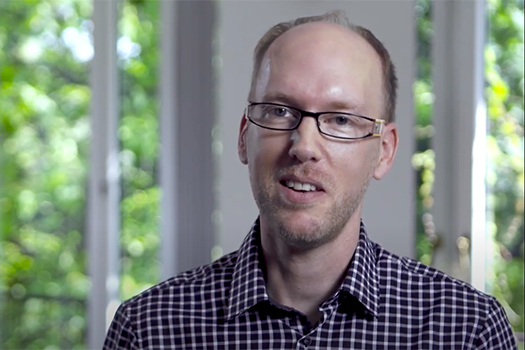Professor Michael Pluess

Professor of Developmental Psychology - Associate Staff
Email: m.pluess@surrey.ac.uk
Website: http://www.michaelpluess.com/
Research
Research Interests:
I’m a chartered psychologist and professor in developmental psychology spending most of my day researching how environmental experiences shape the course of psychological development across the life course.
The predominant part of my research deals with questions related to Developmental Plasticity, the understanding that experiences while growing up affect developmental outcomes. More specifically, I’m interested in individual differences in the capacity for such developmental plasticity as a function of different individual characteristics (e.g., genetic variants, personality traits etc.), a notion brought forward in the Differential Susceptibility (Belsky & Pluess, 2009) and Vantage Sensitivity (Pluess & Belsky, 2013) frameworks.
According to Differential Susceptibility reasoning individuals differ fundamentally in the degree they are affected by environmental influences regarding their psychological development: Some people are generally more and some less influenced not only by negative but also by positive environmental influences. Most of my work falls in one of three areas:
Developmental Plasticity
My research regarding the effects of environmental influences and experiences and the moderation thereof includes the study of environmental influences as early as the fetal period, but also quality of care in early childhood and experiences in adulthood. A special focus of my research is the prenatal programming of postnatal plasticity, based on findings that experiences during pregnancy influence the degree of developmental plasticity after birth.
Gene-Environment Interaction
Besides psychological and physiological characteristics, genes have also been shown to moderate effects of the environment on psychological development. My work includes the investigation of so-called gene-environment interaction studies pertaining to a diverse range of environmental influences in large-scale longitudinal prospective studies.
Positive Development and Resilience
I’m also interested in the concept of Positive Development in contrast to developmental psychopathology. This includes the design and empirical evaluation of intervention programmes aimed at fostering positive development and psychological resilience and the investigation of genetic and psychological moderation of such intervention effects.
Gene-Environment Correlation
Research shows that our genes do not just influence our mental health and wellbeing, but also our experiences of the environment (such as smoking or the amount of social support we receive from friends and family). This research looks into whether the genes that have been linked to schizophrenia and major depression are correlated with positive or negative behaviours and environmental experiences.
The Role of Environmental Sensitivity in Mental Health
We are looking for clinics to take part in an exciting new study on the impact of Environmental Sensitivity (ES) on patient outcomes.
The DreamLab Programme
The DreamLab Programme is a course that has been developed by developmental and educational psychologists to help young people develop concrete plans for their future. Here we provide more information on the DreamLab Programme as well as instructions for how to sign up for the course.
Global Mental Health
Research on mental health and psychological well-being in humanitarian crises and low-income settings represents an important focus of the Psychology department. Here we provide information on several studies on global mental health led by Prof Michael Pluess and his collaborators.
Strengths of the Journey Intervention
Members of our Psychology department have developed a seven-day intervention manual for use with displaced young people in late childhood and early adolescence living in refugee camps, in direct response to needs highlighted by NGOs working in and children living in refugee camps.
Sensitivity to School
This project involving SBCS Professor of Developmental Psychology Michael Pluess, Dr Francesca Lionetti, and PhD student Jenni Kähkönen aims to develop new measures of child sensitivity and to observe sensitive children’s development in the first two years of primary school. The new measures will enable both teachers and educational psychologists to reliably assess children’s sensitivity.
An Italian version for a related study in Switzerland can be viewed here.
Genetics and Relationships (GENREL)
Some people are more affected by experiences, including their relationships, due to heightened genetic sensitivity to environmental influences. The GENREL study aims to investigate genetic moderation of a relationship intervention for newly married couples featuring a genome-wide approach.
Biological Pathways of Risk and Resilience in Syrian Refugee Children (BIOPATH)
The BIOPATH is a large longitudinal study aimed at investigating the complex and intricate interplay between risk and protective factors in the prediction of psychological well-being of Syrian refugee children living in Lebanon. The study features a large sample of 1,600 families and considers risk and protective factors across multiple levels of analysis (biological, psychological, social and environmental).
Individual Differences in Environmental Sensitivity to Parenting (EStoPARENTING)
Current measure of Environmental Sensitivity are based on self-report. As part of the EStoPARENTING study, we have been developing a behavioural rating system for the use with 3-year old children in order to investigate whether behaviourally assessed sensitivity moderates the effects of parenting quality on children’s development.
Development, Piloting and Evaluation of a Phone-Delivered Psychological Intervention (t-CETA) for Syrian Refugee Children in Lebanon
Many refugee children in need to psychological treatment don’t have access to such due to various obstacles in low and middle income countries. The t-CETA aims to overcome these obstacles by developing and testing a psychological intervention that can be delivered in humanitarian settings over the telephone.
Differential Susceptibility to Early Education: Development and Validation of Sensitivity Measures for the School Context (EStoSCHOOL)
The EStoSCHOOL study features a longitudinal design across two years in order to identify sensitive children in the school context. As part of the study we are developing a teacher-rated measure of child sensitivity.
Validating screening questionnaires for internalising and externalising disorders against clinical interviews in 8-16 year-old Syrian refugee children (VaST)
Most mental health measures that are being used with Syrian refugee children have not been validated. As part of the VaST study we will validate current measures with the help of standardised clinical interviews in Syrian refugee children living in Lebanon.
Personal website: michaelpluess.com
Research department
- Psychology